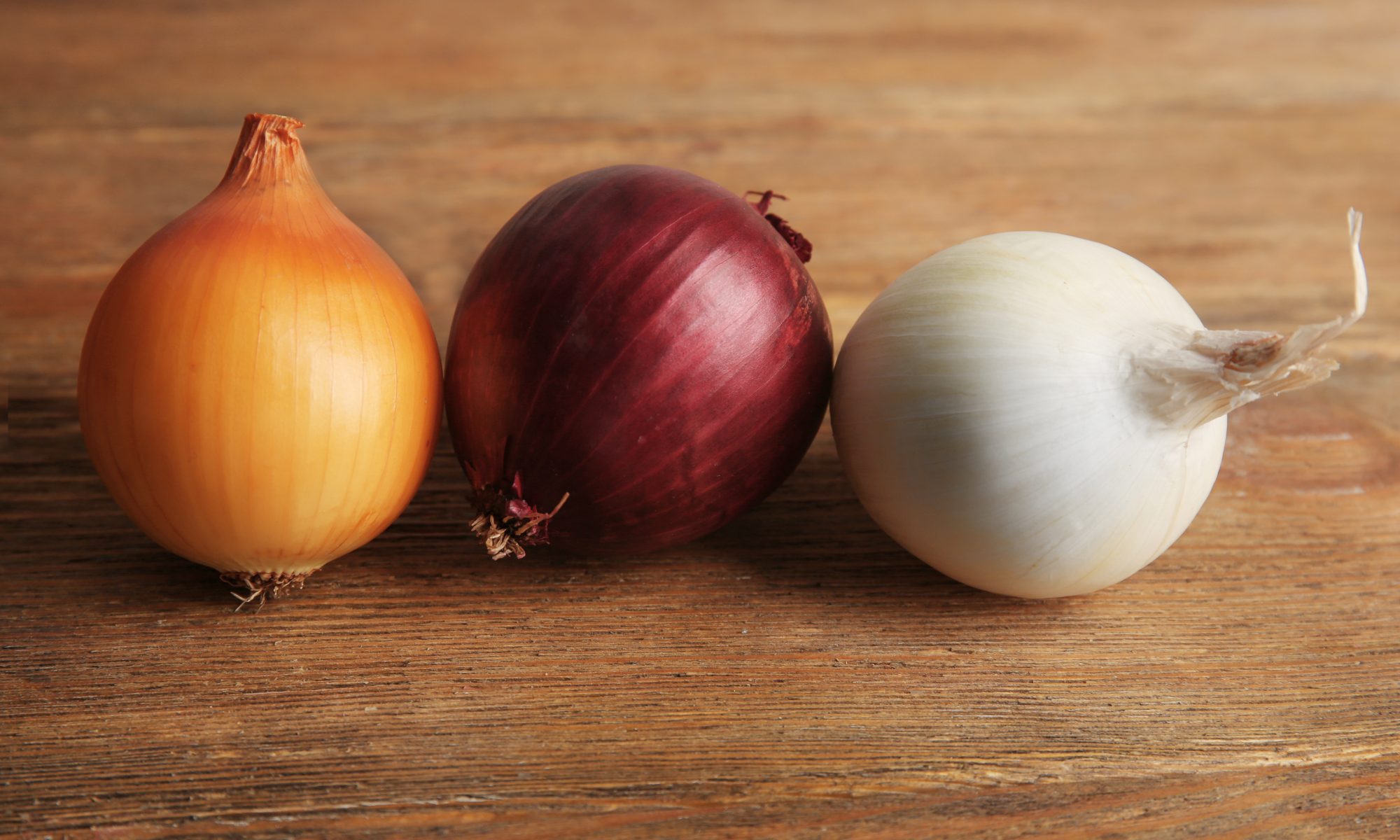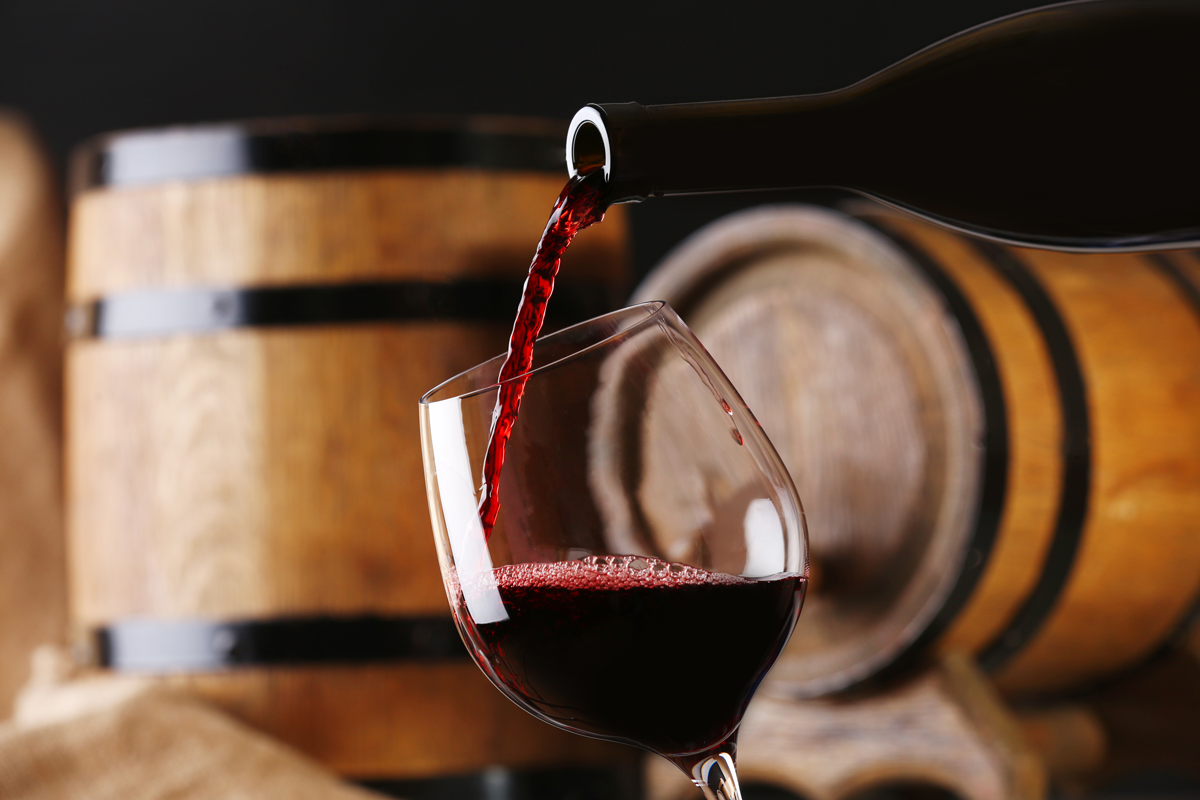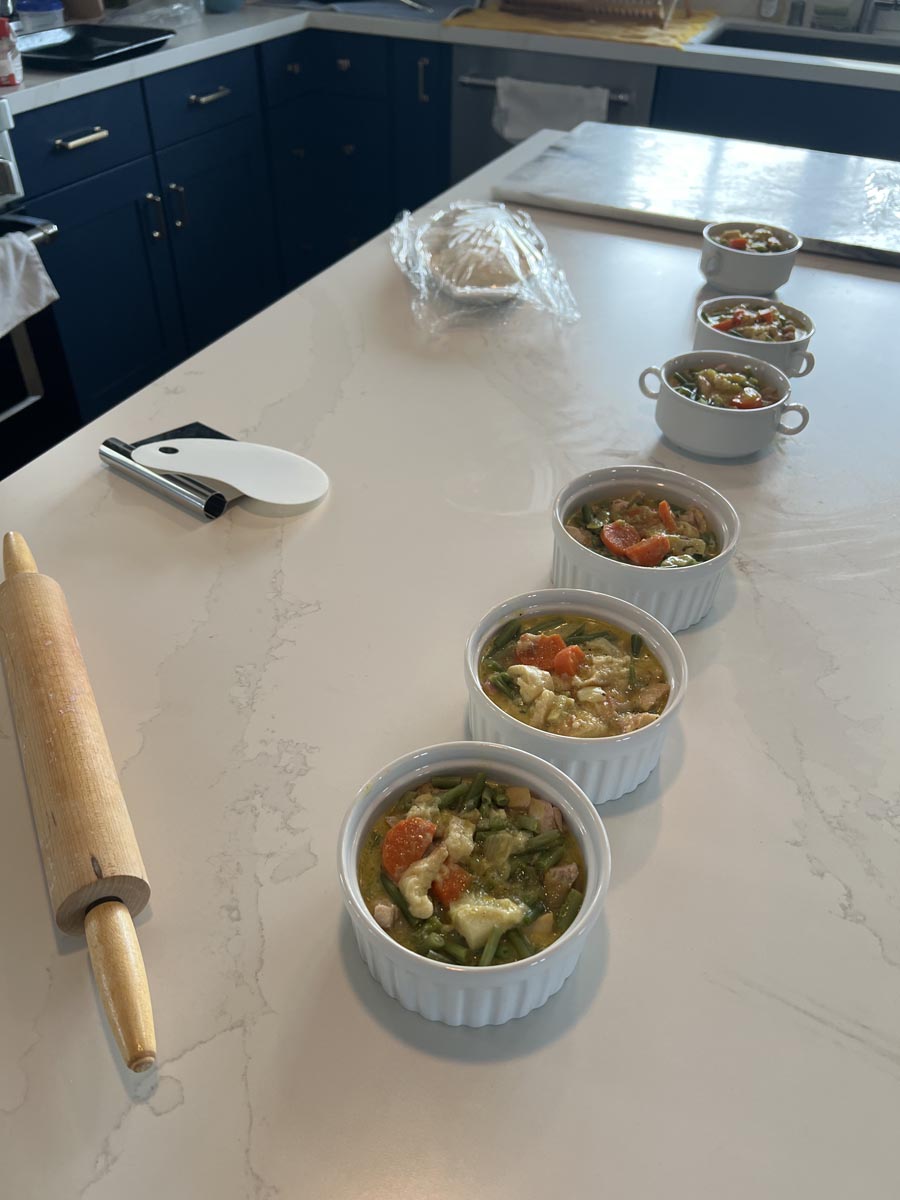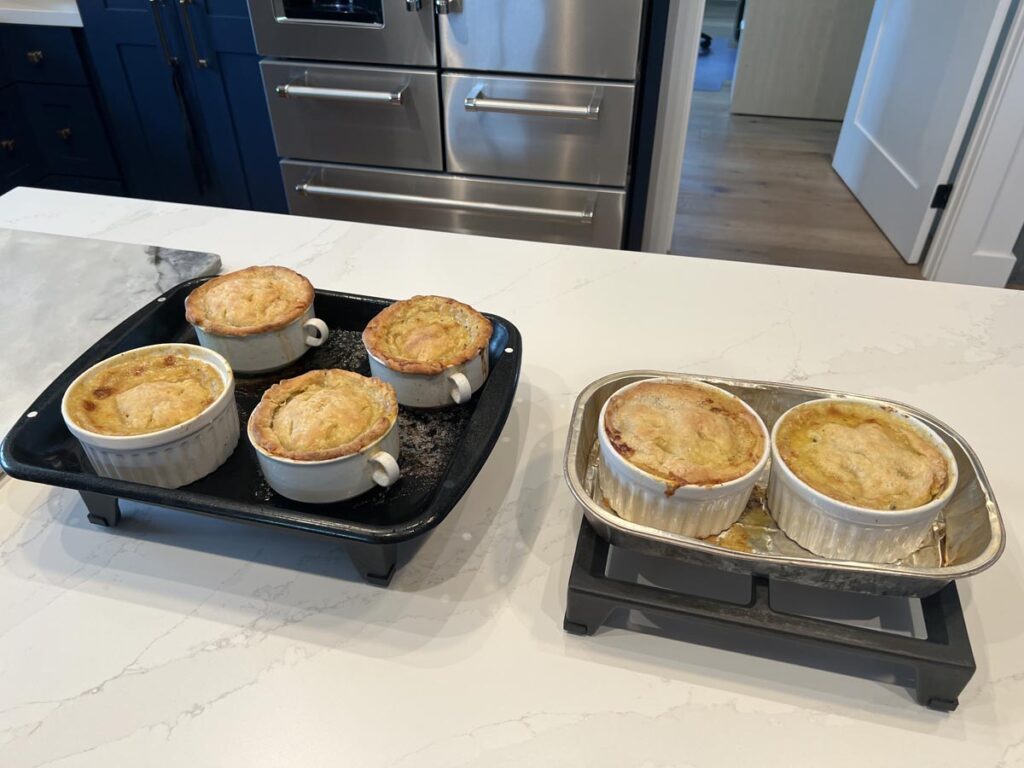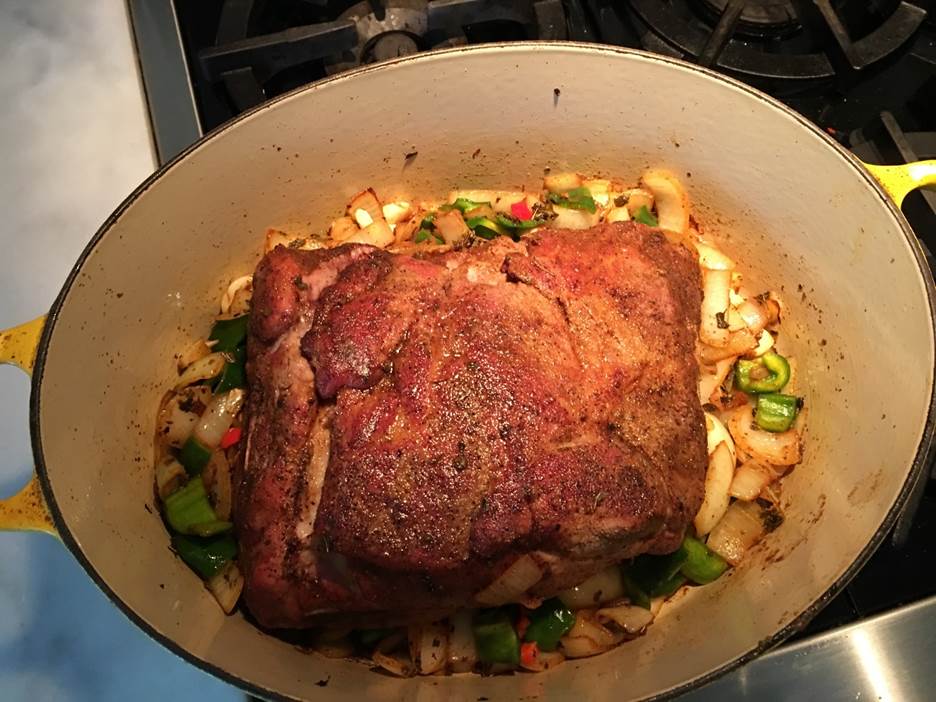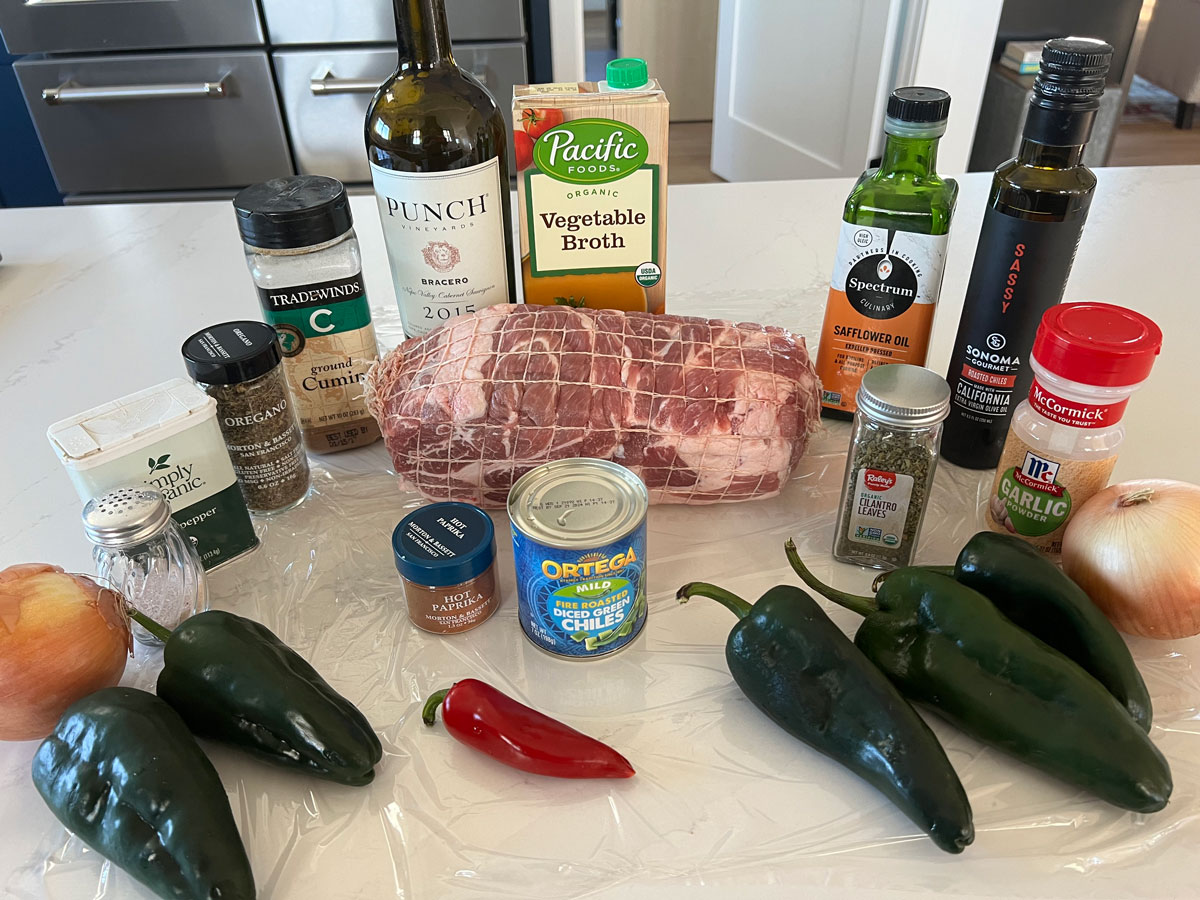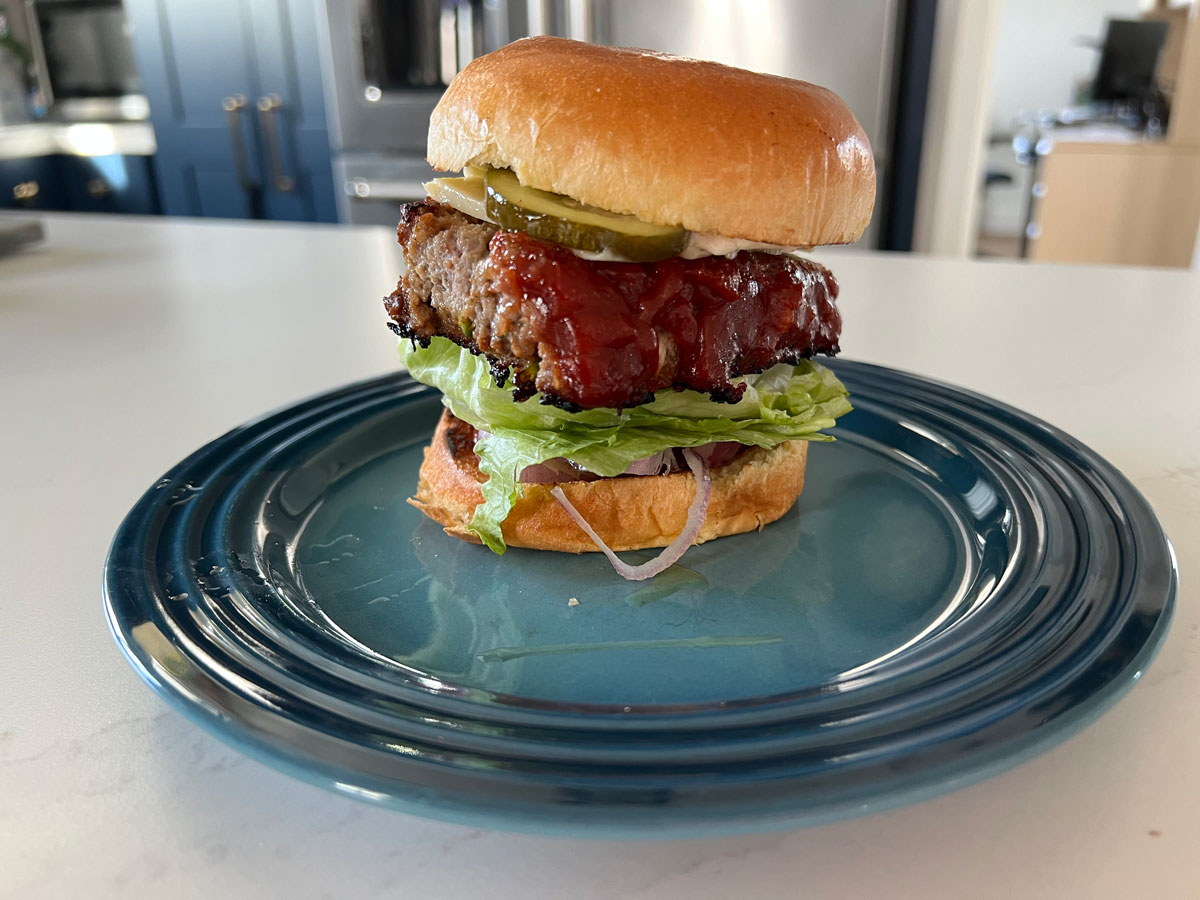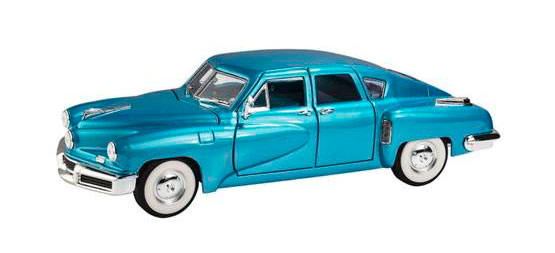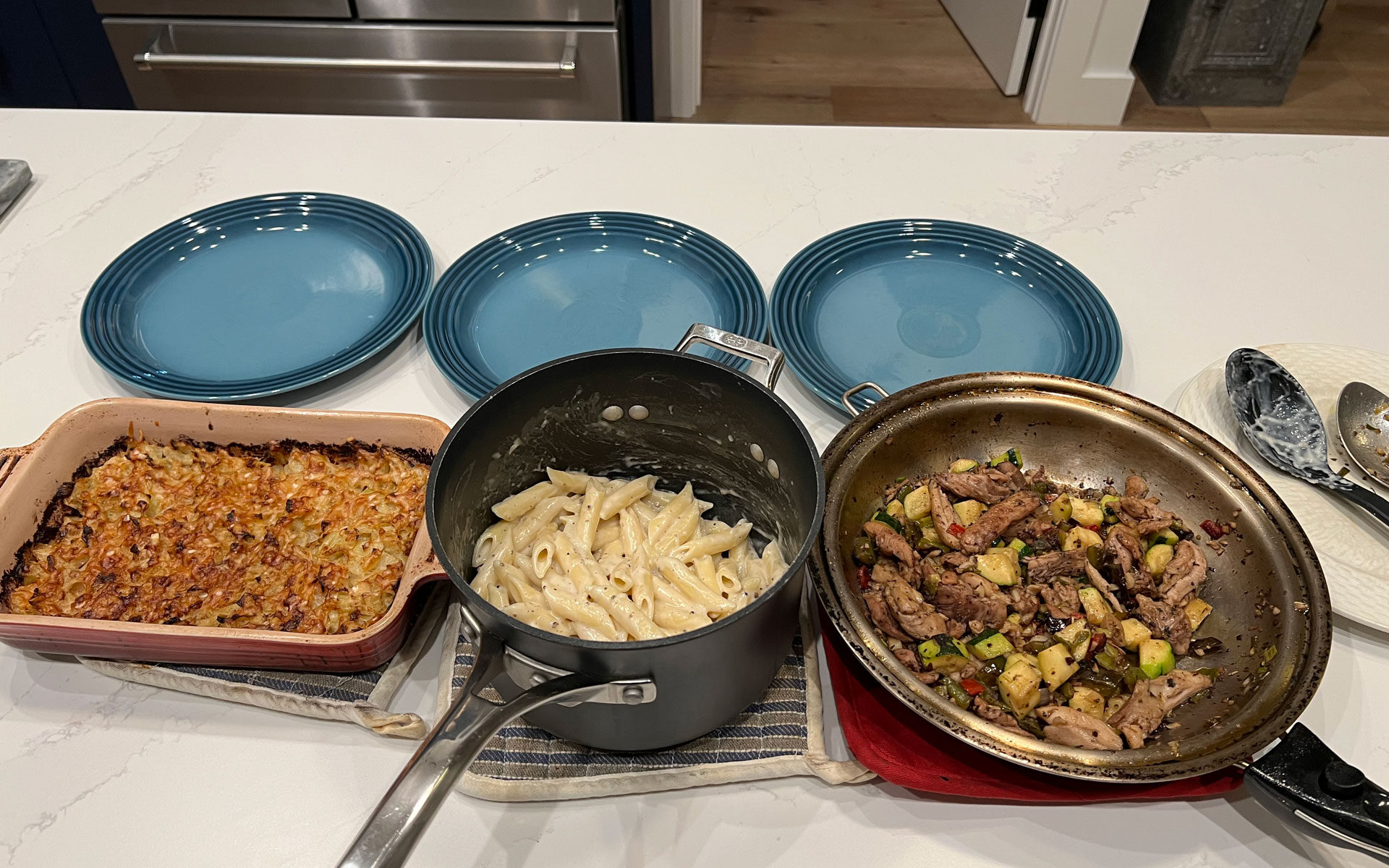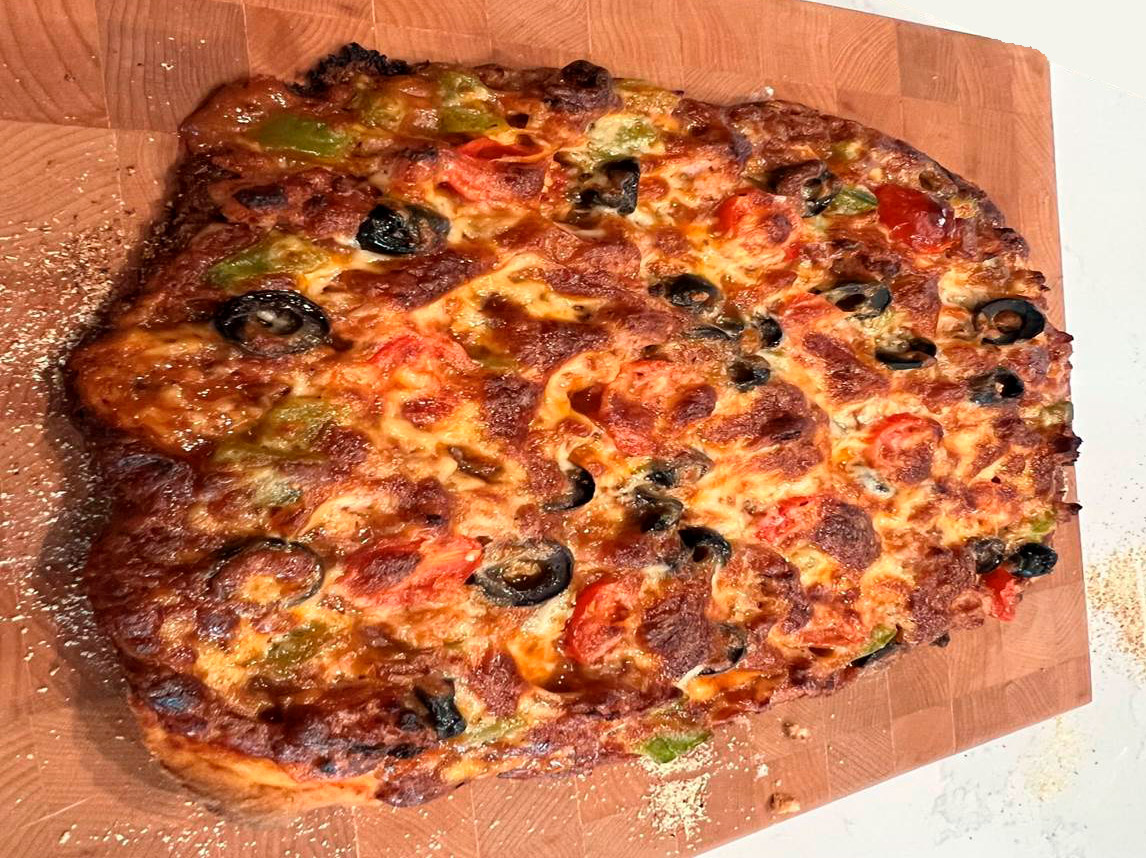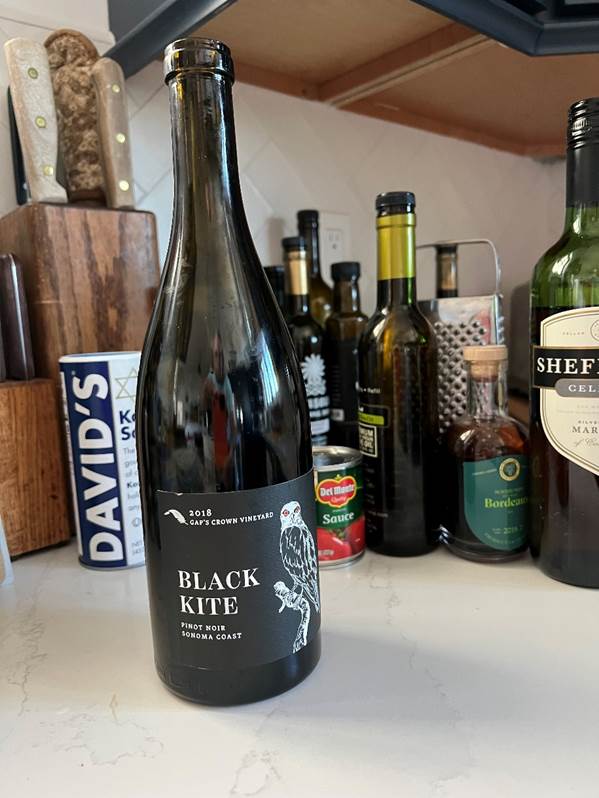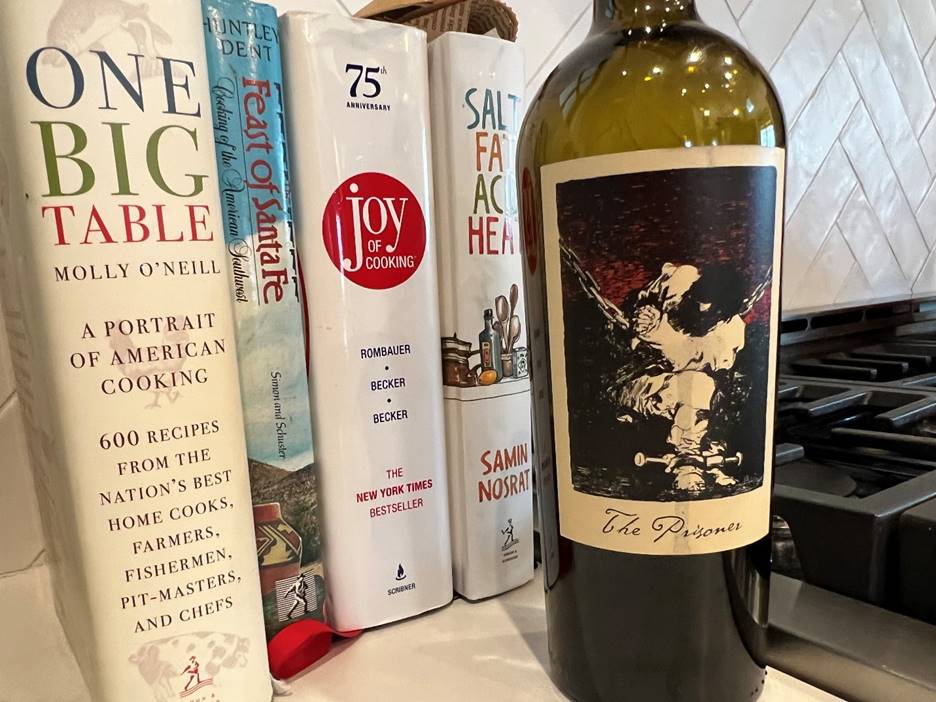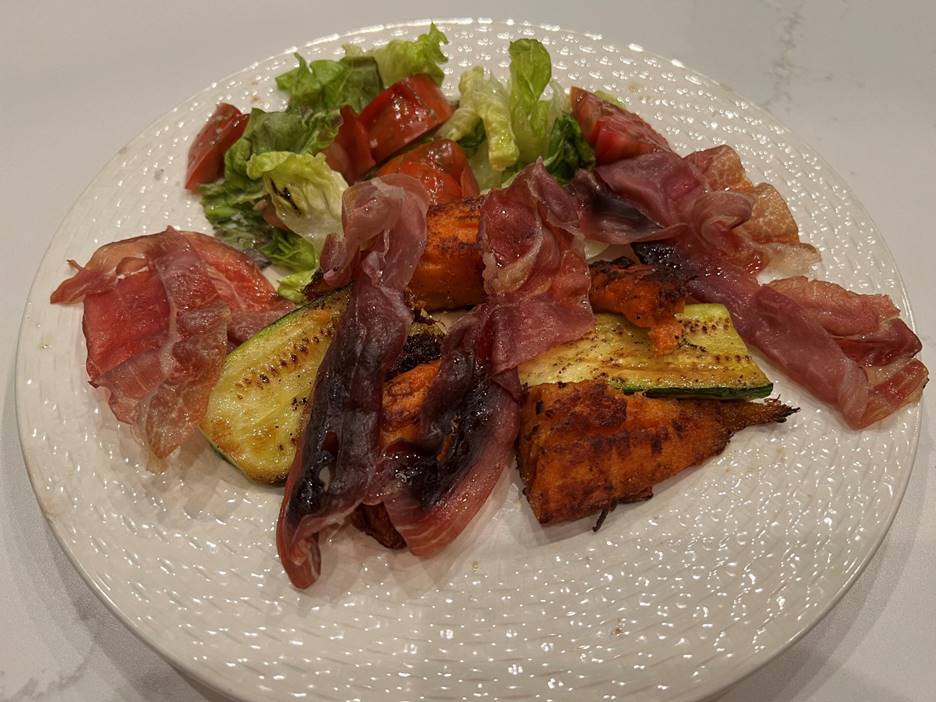I was trading emails the other day with a prospective customer who told me he lived in the San Luis Obispo area (SLO) and had been there for about two years. I asked him if he had gotten into the local wine scene in Paso Robles (no, but thinking about it, he said) so I told him about some wineries that are worth exploring. I had refreshed my own memory just a year or so ago, when my partner and I opted-out of Thanksgiving weekend and instead, did a short road trip to Paso, where we ate, drank, looked at the ocean from jagged seaside cliffs, toured the Hearst Castle, and walked the wonderful beach in Carmel – home to legendary film maker and past mayor of Carmel-by-the-Sea, Clint Eastwood.
Two of the wineries we enjoyed most on the recent visit was Four Lanterns, so-named by the proprietors for their four children – all girls, if memory serves, and McPrice Myers. Both make excellent blended or cuvee reds that are easy to drink yet structured enough, and pair with many foods. They are also less expensive than most Northern California wines of comparable quality.
Here’s the blend of McPrice Myer’s 2020 Beautiful Earth red wine: 48% Syrah, 16% Grenache, 14% Mourvèdre, 10% Cabernet Sauvignon, 6% Petit Verdot, 4% Petit Syrah and 2% Zinfandel. Like musicians in an orchestra or symphony, each varietal has a role to play to bring that delicious wine to life. Currently listed at $75 a bottle, this wine ranked #16 in Wine Spectator’s Top 100 Wines of 2022. I won’t trouble you with all the tasting notes, but will call out its last sentence: “Broad, weighty, and plush on the palate with a densely packed finish.” I would like to hear the winery’s founder and wine maker, McPrice (Mac) Myers talk about this wine. I don’t know how common it is for wine makers to blend both Bordeaux and Rhone Valley varietals into a wine, but this more-than-casual wine drinker thinks it’s a brilliant mix that produces a robust yet soft wine drinking experience. You get the calming influences of Grenache, Mourvèdre and Syrah (Loire Valley) with the punch of Cab Sauv and Petit Verdot found in France’s southwest. Anyway, whenever one thinks of the Paso Robles wine area, and this man’s namesake winery is also worthy – for both visiting and buying his wine to drink for all occasions, you think of Gary Eberle. It may not be an overstatement to say that the Paso wine region as we know it today was made possible by this pioneering wine maker.
Gary Eberle: The Godfather of the Paso Robles Wine Appellation
I wrote this circa 2013-2014 for a private-label magazine. Mr. Eberle recently turned 80, and can still be seen at the winery on most days.

Gary Eberle has come a long way since playing on the defensive line for the Nittany Lions. The Pittsburgh PA native is one of the four pioneers of the Paso Robles Wine AVA and a winemaking veteran of the region, having arrived in 1973 to help start Estrella River Winery (which became Meridian Vineyards and is now Cellar 360). Along the way, he earned the title of the Godfather of the Paso Robles Wine Appellation as well as a couple other monikers, such as the King of Cab and the Padre of Syrah.
Like any wine region, and just as it has been for Oregon’s Willamette Valley and even the Napa Valley, Paso Robles needed time to develop into a quality wine region.
“A limited number of vineyards were planted here in the 1950s and 1960s and a lot of the original wineries were essentially home wine makers, who could make some great wines in two out of five years but you don’t get anyone’s lasting attention with inconsistency. Furthermore, vineyard management is farming and it takes years to figure out what works… where and how. It wasn’t until we had a good critical mass of wineries and university-trained enologists that we really started producing good wines on a consistent basis. Paso in the 1990s just blossomed. Today, I am stunned at the quality of the wine makers here … they bring good ideas, credentials and experience to their craft,” said Eberle.
Eberle picked up his craft and a desire to be in the wine industry after graduating from Penn State University with a degree in biology and going to Louisiana State University (LSU) to pursue graduate studies in cellular genetics.
During his time at LSU, a professor introduced him to the magical world of food and wine. Tasting a sampling of fine, classically made Bordeaux from his professor’s cellar, Eberle took a keen interest in Cabernet Sauvignon. He began to envision the possibility of creating a wine that would rival those of Bordeaux and soon found himself on an airplane to California.
He arrived at the University of California at Davis, where he met with the chair of the enology department and explained that he wanted to become a winemaker. Impressed with Eberle’s credentials, the professor admitted him to the doctoral program without the usual qualifying exam.
During his work at Davis, Eberle realized the untapped potential of the Paso Robles region and decided it was where his winemaking future lay and arrived in 1973. Eberle made a few trips to Paso with some of his Davis professors, including pioneering viticulturist Dr. Harold P. Olmo, and was hooked.
One of his first jobs in Paso was to plant vineyards and see which varietals would thrive. On a little more than an acre, he planted 18 vines with 40 different varietals. All the clones from Pinot Noir, Beaujolais and Chenin Blanc did poorly, but the Bordeaux varietals did very well. At the time, Eberle didn’t know that it was the beginning of Paso’s emergence as a great venue for producing excellent Rhone-style wines.
10 years after founding the Estrella River, Eberle’s dream was realized with the release of his first Eberle wine, a 1979 Cabernet Sauvignon that was released in 1982. And a year later, he opened Eberle Winery, which is located 3.5 miles east of Highway 101 and along Highway 46. It was the same year – 1983, that Eberle and the three other Paso pioneers were successful in establishing the Paso Robles and York Mountain Viticulture Areas (AVA) as recognized and defined by the Alcohol and Tobacco Tax and Trade Bureau (TTB).
“Robert Mondavi largely gets credit, and deservingly so, for Napa Valley becoming recognized as a premium wine region. He was our industry’s greatest marketing visionary and a true genius. I met him a few times when I was at Davis. In Paso, a few of us knew that getting a recognized AVA was a crucial step for the region. Outside of California, no one had ever heard of Paso Robles,” said Eberle.At the time there were fewer than 10 appellations in the entire United States. Eberle teamed up with Herman Schwartz, who had a large vineyard in the area, Victor Hugo Roberts (winery Victor Hugo) and Tom Martin, who owned Martin Brothers Winery.
“The AVA application was only 10 pages or so. We filled in the forms and sections on geology, meteorology and even drew the boundaries using U.S.G.S. topographical maps. The fee was modest. I delayed labeling and selling my 1980 Cabernet so I could use the Paso AVA and I ended up having the first wine with a Paso AVA. Eberle’s 1980 was first released in 1983 and “it still drinks beautifully,” Eberle said. He added that a limited number of bottles are available to purchase – for $1200 each.
The 69-year-old Eberle serves as the winery’s chief marketing officer and periodic grill master and pizza maker. The wine maker is Ben Mayo and the winery produces about 25,000 cases a year. About half of the wine is sold at the winery and the other half through distributors. Eberle flies his Cessna 340 (six seats, twin engine) with his wife to major markets for wine tasting events, sales meetings with distributors and wine makers’ dinners, making the 9-hour flight to the East Coast and meetings in Philadelphia, New York, Charleston or other U.S cities as often as possible, stating: “I built a business model to make more money selling direct to customers from our winery, but my ego demands that we have a presence in major markets, plus it brings in out-of-state tourists.”
Eberle Winery is one of the few of the 1500 or so California wineries that still pour complimentary wine tastings.
“We never charged for tastings and I think it is counter-productive. If you charge, you take away the customer’s ability to reciprocate and the way they reciprocate is to buy wine. I think we’ve sold more wine because we understand this aspect of human nature,” he said.
The winery also sells more wine by hosting barbecues and more recently, serving wood-fired pizzas from the new outdoor pizza oven. Three times a month in summer and once-or-twice a month in winter Eberle grills Tri Tips, duck sausage and baby back ribs and asks people to make a 25-cent donation to the Children’s Museum in Paso (it was started by Tom Martin). Wood-fired pizza was added in late 2013.
“It’s a lot of fun, our customers have a better wine tasting experience by pairing some of the wines with food, and it is a great return on our investment of $350 in food costs,” Eberle said.Don’t expect Eberle to retire any time soon. A self-avowed people person, he’s at the winery seven days a week and simply loves what he does too much to even consider quitting.
